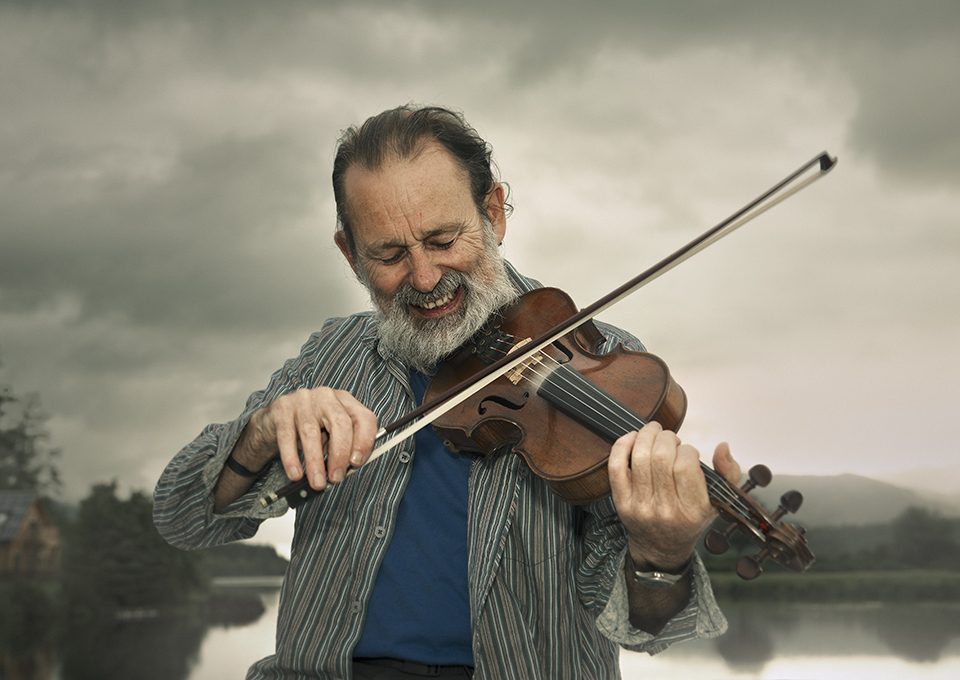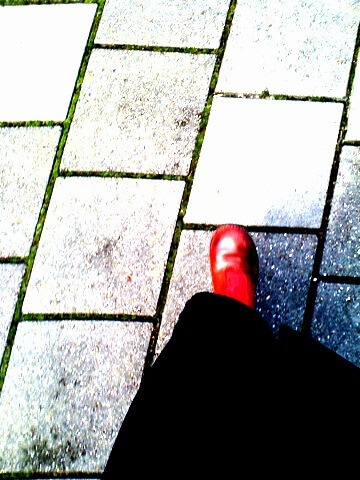We want to travel around in Scotland, but our wallet is feeling the crisis. So we decide to go couchsurfing and run into poets, fiddlers, alleged murderers and now and again a good fairy.
Mrs. Nomad opens her mouth and sighs, “All right then, if you’re sure we’ll survive this.” After she purchased a torch the size of a baseball bat, we address the question of our potential hosts and hostesses in the Scottish Highlands. We quickly discover that Scots are unusually creative when it comes to living accommodation.
Bunker
Many people live in home-made structures, above and below the ground. And people live pretty much everywhere: in a bunker on the coast, in an old school without heating, on a small island without facilities. “But”, the latter hostess warns, “if you want to stay here, you’ll need to come for a few days because there’s no transport and I’ll have to pick you up in the boat.”
The prospect of spending four days with Mrs. Nomad on a self-sufficient island without the escape option of a pub, let alone a boat, is going too far for me. It ends up being Charlie. Perhaps because of the length of the message he sends in reply to our couch request: “Welcome!”
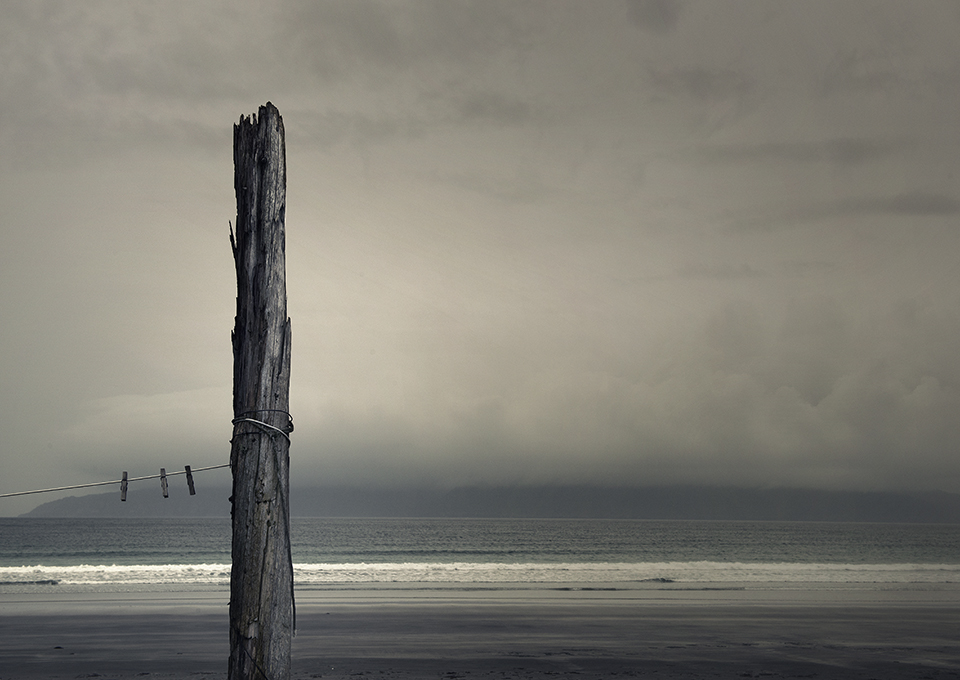
Charlie lives on a Chinese sailing ship, a junk, on the Caledonian Canal. Where it flows into Loch Lochy. Past the lighthouse. He’s a shipbuilder, tours as a fiddler in Scottish folk bands and performs as a story-teller in pubs. And for the sake of completeness: he’s also a poet. Just to be on the safe side, Mrs. Nomad buys another torch.
Couchsurfing. The phenomenon has existed for less than a decade and was actually started by accident when American students wrote to 1500 students in Iceland to ask if anyone had a couch they could spend the night on.
Couchsurfing
After an overwhelming reaction, the idea was conceived that there must be more people in the world who are prepared to offer travellers a bed – the so-called friends you haven’t met yet. Ten years on, couchsurfing has grown into a community of 6 million members spread over 100,000 locations in the world, for instance in the Scottish Highlands on a boat in Gairlochy.
From Glasgow, we drive to the north-west. We soon come across our first loch and our first mountains. They are staggeringly bare, with small insignificant houses against the granite. Apart from that, the landscape is deserted. Dusk is falling as we arrive in Gairlochy. Mist has nestled on the water and it takes us a while to find the boat.
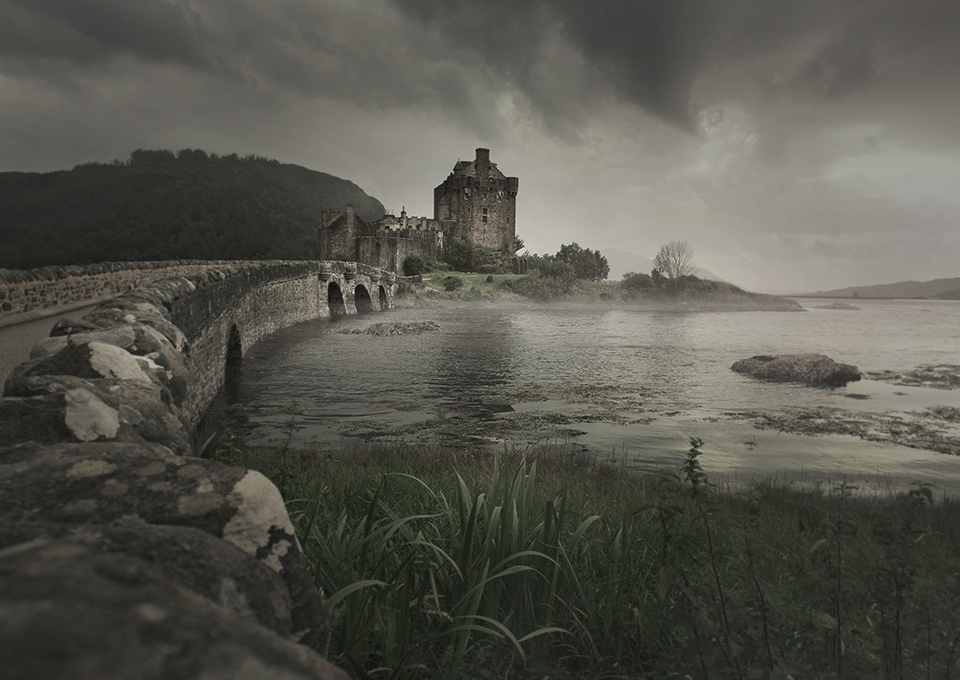
On the photo on the site, Charlie apparently hadn’t got round to doing the washing yet. Now we see a boat concealed behind clothes hanging on a line. On the other side of the canal people have put up little tents. Canoes are lying dripping in the grass. “Are you Charlie?” I ask a man with a ponytail who is sewing a sail in among the washing. “No, he’s down below, I’ll call him.”
Shortly afterwards, a man with a grey beard and a big smile appears, clasps us in his arms briefly and then points to our suitcases with a grin. “So, you’re moving in right away?”
It’s cosy below deck. There are coloured cushions on gleaming wooden benches and the side walls are stuffed with books about nautical subjects, botany and healthy food. Hanging from the ceiling are several string instruments. There are flowers on the table and candles burning.
We are allocated two narrow beds under the forward deck. It is entirely unclear what Roy’s role is, but the old hippie lives here as well, apparently, because he pours us a glass of wine.
Since we haven’t yet eaten, Charlie cooks us a trout that’s just been caught. And for afters, ice-cream with freshly gathered blueberries. For someone who is just waiting for the right moment to murder us, according to Mrs. Nomad, he’s taking very good care of us.
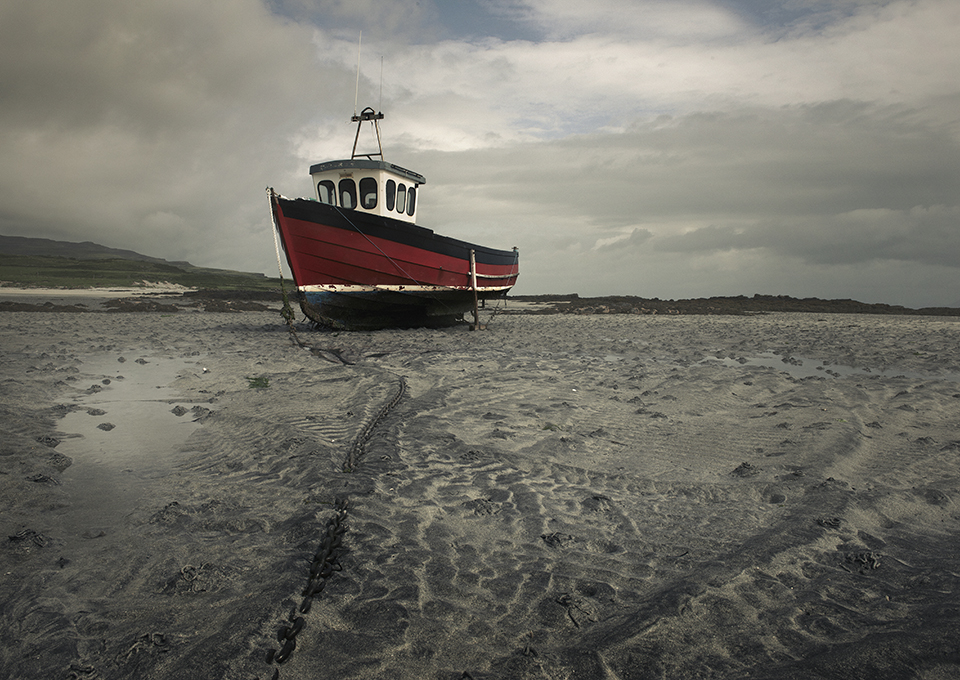
Once the mist has completely hidden the boat from view and we can hear only the groaning of the boat as it moves against its rope leash, Rory opens another bottle of wine and tells us the history of the Highlands. A sad community of exploited men and women pass us by when he begins to talk about the Clearances.
Through the actions of capital-hungry landowners who preferred to see the agricultural land grazed by sheep than cultivated by small farmers, large numbers of Highlanders were driven out of Scotland. A famine made the drama complete. Ultimately, many Highlanders sought refuge overseas, so the sparsely populated area became even more depleted.
“Many people still move away now. You have to be able to cope with living here. But in the end we all come back. Look at me, I’ve lived all over, but now I’m here”, Rory tells us.
For Charlie it was clear from the beginning that Scotland was the place for him. He’s a nature man. He once decided to sail the Baltic Sea in his boat. “When I was there, I realized that it wasn’t nearly as beautiful as in Scotland. I went back and stayed here.” Charlie turns out to be a born story-teller when he takes the floor and tells about the wild nature in Scotland.
And in nature, there are elves and fairies. “They exist”, he says calmly. “Every Scot knows that. Here in the wilderness you come across elves regularly. You have to take the time for them, and then they’re well-disposed towards you. If I feel their presence, I sit down and always explain to them who I am. Who my family is, what they’re called.” Rory nods in agreement.
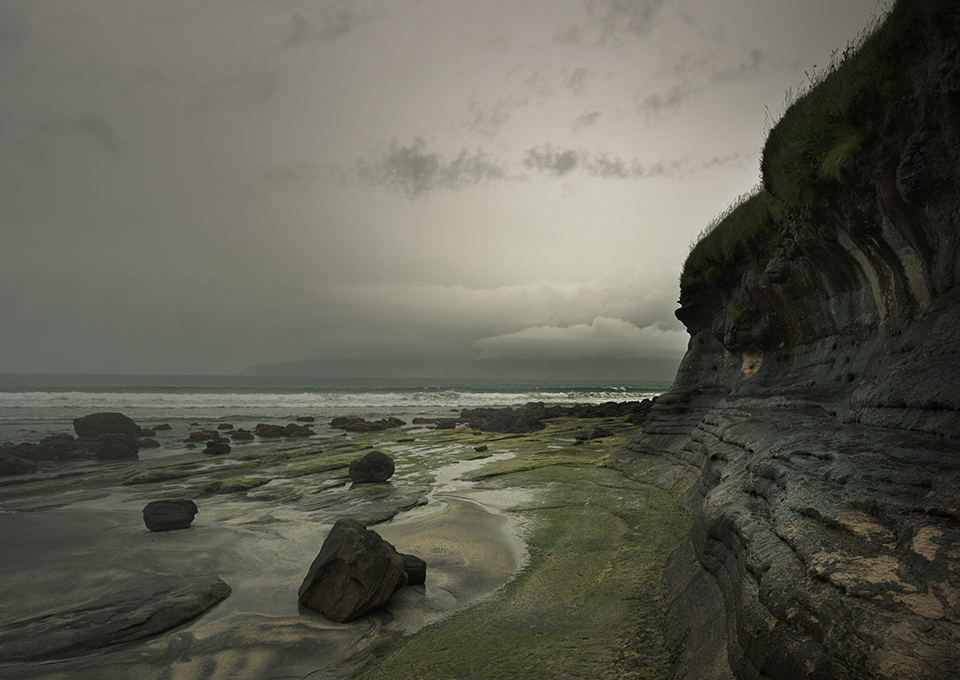
The men don’t notice that the blood has drained from Mrs. Nomad’s face. I explain carefully that the photographer is rather afraid of ghosts and other entities. “Afraid?” says Charlie a little vexed and scratches his beard. “Afraid?” echoes Rory. “How can you be scared of something that just is?” “Jesus”, says Charlie, “but you’re going to the Isle of Eigg, aren’t you? It’s swarming with witches there.”
In the middle of the night I am roughly awakened by Mrs. Nomad shining her baseball bat torch in my face. I want to say something angry to her, but remember just in time that I mustn’t move, otherwise I’ll plummet down two metres from my ledge. “Did you hear that, too?” she asks, her lip trembling. “What?” I ask in irritation. I don’t hear a thing. Just the boat splashing and the rope making a slightly grating sound. The rest of the world is quiet.
Portholes
The following morning we wake up with a faint light coming through the portholes. I am surprised to see that the car is parked in the other direction on the path. That wasn’t like that the evening before. “Why is the car parked the other way round?”
“Ha”, the photographer says with a sneer. “I put the car in the escape position last night. If need be, we can get away very fast.”
“There’s a barrier at the end of the path”, I remind her. “I parked the car in such a way that in an emergency I would just hit the pole lightly, which would make me tilt to the right and really ram the barrier. Piece of cake.”
By now, Charlie has made us an extensive breakfast. “Did you sleep well, ladies?” he asks. While we’re enjoying the food, Charlie suddenly asks: “Why did you move the car last night? You nearly ran me over when I had to go out for a pee.”
“Do you mean to tell me”, I say when we have taken leave of our friendly host, “that you and your alleged murderer were both playing outside last night while I was safely tucked up in my warm bed?”
Text: Anneke de Bundel – Images: Nicole Franken
Translation: Christine Gardner
With thanks to Charlie for his hospitality.
This story has been published in Dutch in our book On fairies and bullet holes. You can order our book here.
Scotland practical:
- Sign up for Couchsurfing (it’s free)
- Ticket costs Amsterdam – Glasgow around €100 euro p.p.

